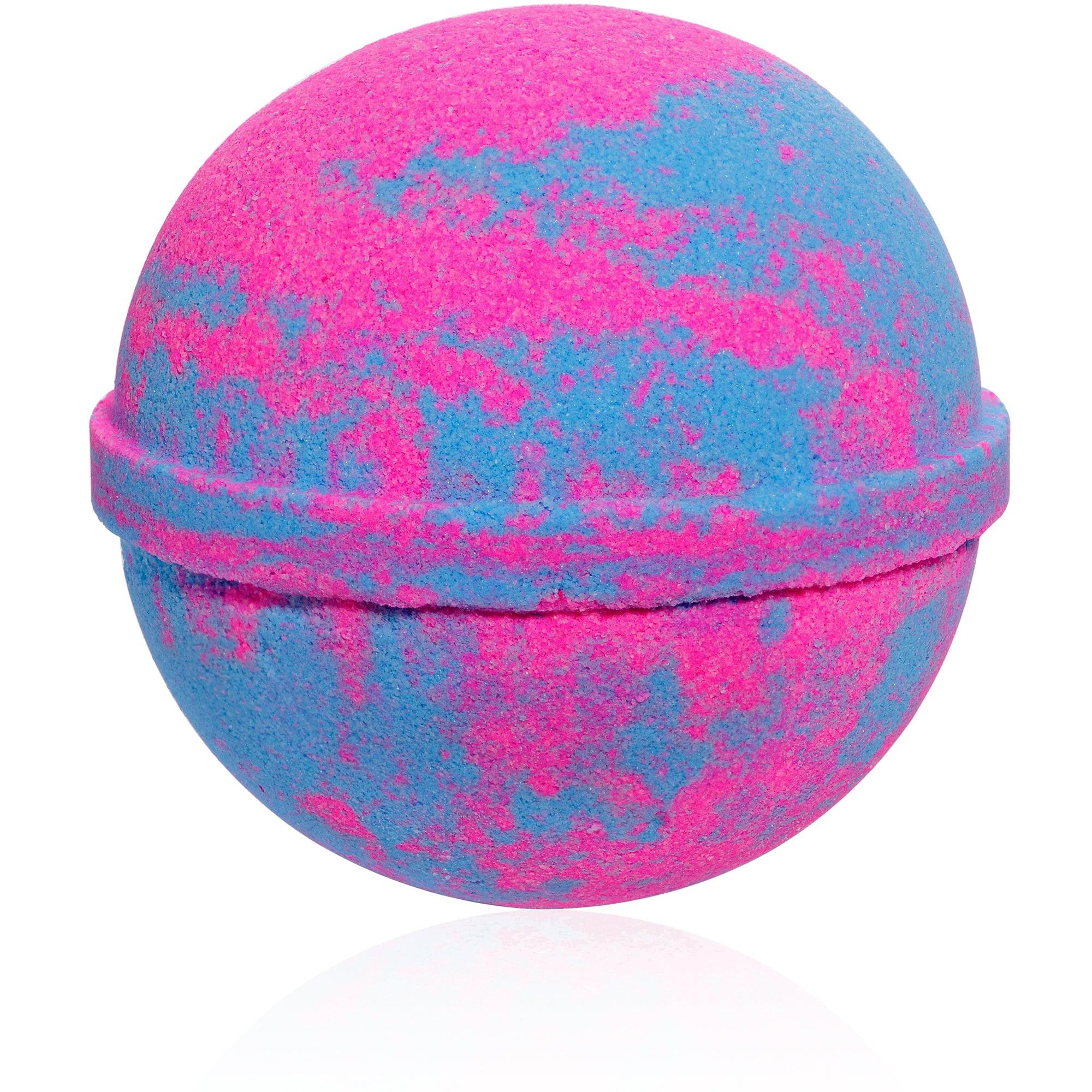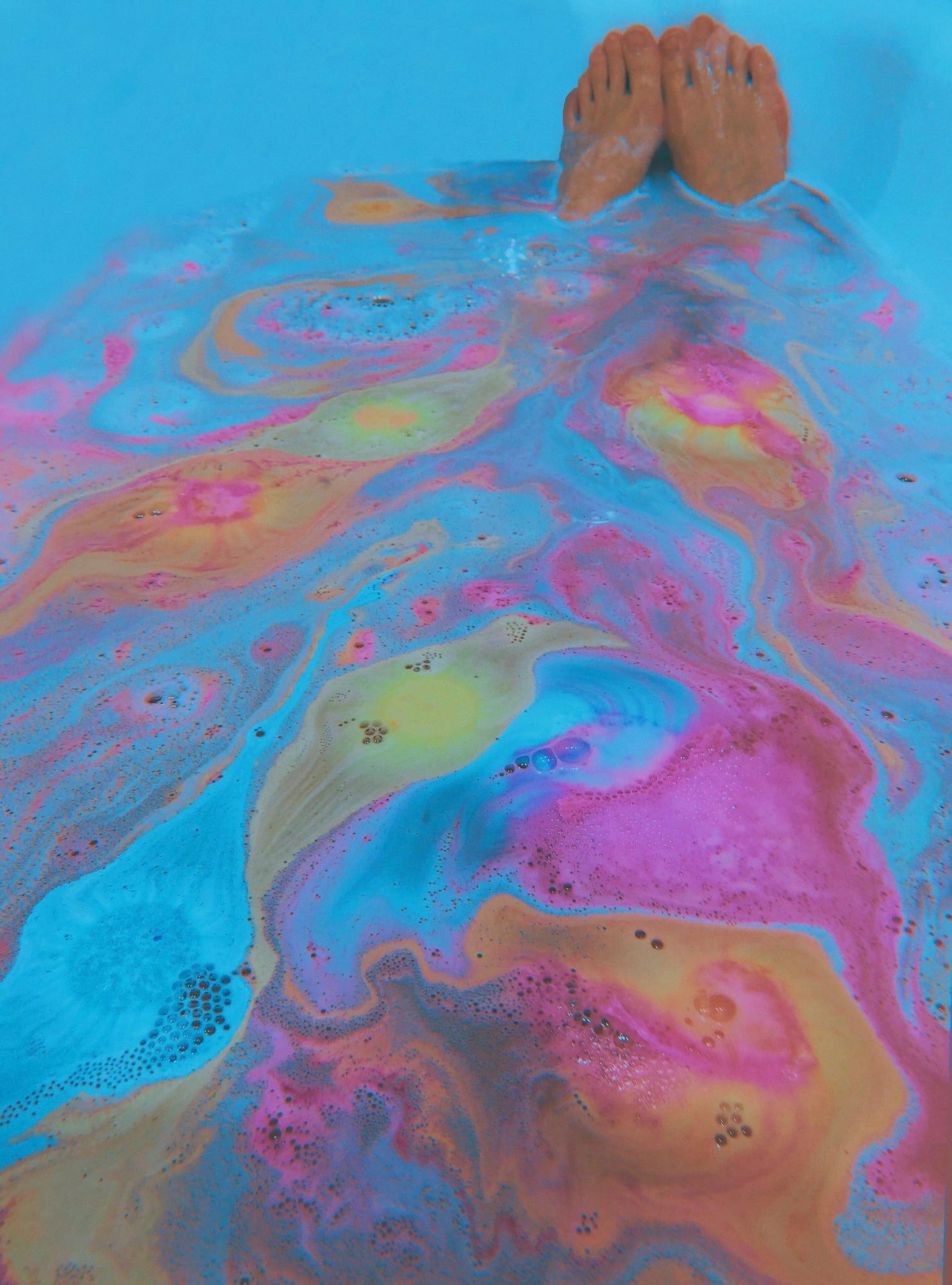Bath bombs have become a popular way to enhance your bath time experience. They come in various colors, scents, and shapes and can be a fun addition to your self-care routine. However, like many other beauty products, bath bombs have an expiration date.
The shelf life of a bath bomb depends on its ingredients and how it’s stored. Generally, bath bombs have a shelf life of abut one year. After this period, the bath bomb may start to lose its fizz and become less effective. However, it’s still safe to use, and you may still enjoy the scent and color of the bath bomb.
But, what happens when a bath bomb expires? When the expiration date passes, the product becomes more likely to host unwanted microscopic critters, which can cause skin irritation and infections. Bath bombs also contain additional ingredients such as essential oils, flower petals, and oatmeal, which can cause the product to get moldy or rancid within one year.
To ensure that your bath bombs last as long as possible, there are a few things you can do. Firstly, store them in a cool, dry place away from direct sunlight. Keeping them in an airtight container can also help to preserve them for longer. If you notice any changes in the texture or smell of the bath bomb, it’s best to dispose of it and replace it with a new one.
Bath bombs do have an expiration date, usually within one year. After this time, the product may begin to lose its fizz and become less effective, and additional ingredients may cause it to get moldy or rancid. By storing your bath bombs correctly and replacing them when necessary, you can enjoy the benefits of a luxurious bath time experience for longer.
Identifying an Expired Bath Bomb
Expired bath bombs may be less effective in terms of fizzing and fragrance, and they may even become moldy or rancid. To determine if a bath bomb is expired, check the expiration date on the packaging or the label. If there is no expiration date, examine the bath bomb for any visible signs of deterioration, such as discoloration or a strange odor. A bath bomb that has lost its fragrance or has a musty smell is likely expired. Additionally, if the bath bomb feels unusually hard or crumbly, it may have lost its effectiveness. If you are unsure about the freshness of a bath bomb, it’s best to err on the side of caution and discard it. Using an expired bath bomb could potentially cause skin irritation or other adverse reactions.

Source: jackpotcandles.com
The Risks of Using Expired Bubble Bath
If you use an expired bubble bath, thee is a risk of developing skin irritation or infection. As the preservatives in the product degrade over time, it becomes a breeding ground for bacteria, fungi, and other microorganisms. Using an expired bubble bath may also cause the product to lose its effectiveness, resulting in poor quality bubbles or a lack of fragrance. In addition, expired bubble bath may cause allergic reactions, redness, itching or rashes due to the presence of harmful bacteria. To avoid any potential risks, it is recommended to dispose of expired bubble bath and purchase a new one.
How Long Should Bath Bombs Remain in Molds?
When making bath bombs, it’s crucial to give them enough time to dry in the mold before attempting to remove them. Ideally, you should leave the bath bombs in the mold for at lest 4 hours, but it’s best to leave them overnight if possible. This extended drying time ensures that the bath bombs are completely dry and won’t crumble or fall apart when you try to remove them from the mold. Rushing the process and removing bath bombs from the mold before they’re fully dry can lead to disappointment and frustration. Therefore, it’s important to exercise patience and allow the bath bombs to dry fully before removing them from the mold.
How to Make Bath Bombs Last Longer
Bath bombs are a popular addition to a relaxing bath, and you may be wondering how to make them last longer. The key to extending the life of your bath bombs lies in the preservation of their natural ingredients, paricularly citric acid. Citric acid is one of the primary ingredients in bath bombs, and it plays a crucial role in the fizzing process that releases the scent and color of the bath bomb.
To make your bath bombs last longer, it’s important to store them in a dry, cool place away from moisture and humidity. This will help prevent the ingredients from reacting and activating before you’re ready to use the bath bomb. Additionally, it’s essential to store your bath bombs in airtight containers to prevent moisture from seeping in and compromising the ingredients’ effectiveness.
Another factor that can affect the longevity of your bath bombs is the quality of the ingredients used. High-quality, natural ingredients will typically have a longer shelf life than lower quality or synthetic ingredients. Therefore, it’s important to purchase bath bombs from reputable sources that use high-quality ingredients.
In summary, to make your bath bombs last longer, it’s essential to store them in a dry, cool, and airtight container, away from moisture and humidity. Additionally, purchasing bath bombs made with high-quality natural ingredients can also help extend their shelf life.
The Shelf Life of Bath Bombs
Bath bombs typically have an expiration date of one year from the date of manufacture. After this time, their fizzing effect may begin to diminish, but they are still considered safe to use. However, if a bath bomb is more than two years old, it is generally not recommended for use as the ingredients may have degraded and lost their efficacy. This can result in a lack of fizz, a change in color or scent, or even potential skin irritation. It is alays best to use bath bombs within their recommended expiration date to ensure the best possible experience and avoid any potential issues. If you are unsure about the age of your bath bomb or have any concerns, it is recommended to dispose of it and purchase a new one.

Source: gemmaetc.com
The Risks of Using Expired Bath Products
It is generally recommended to avoid using expired bath products as they may have lost their effectiveness or even become harmful to use. Over time, the ingredients in these products can break down and lose their potency, leading to reduced effectiveness or even spoilage. Additionally, expired bath products may be more likely to harbor bacteria or oter contaminants that can cause skin irritation or infection. It’s always best to check the expiration date on your bath products and dispose of them if they are past their shelf life. To ensure the safety and efficacy of your bath products, it’s also a good idea to store them in a cool, dry place away from direct sunlight and moisture.
Shelf Life of Unopened Bath Products
Unopened bath products such as shampoos, conditioners, shower gels, and soaps generally have a shelf life of abut two to three years. The exact expiration date can be found on the packaging, and it is important to pay attention to it to ensure that the product is still safe to use. Factors such as exposure to light and heat can also affect the quality and longevity of the product. It is important to store these products in a cool, dry place, away from direct sunlight and humidity, to prolong their shelf life. Using expired products can lead to skin irritation, infections, and other health issues, so it is always best to check the expiration date before using any bath products.
Conclusion
In conclusion, bath bombs do have an expiration date and it is usually within one year. Although it may still be safe to use after six months, the fizziness may decrease. Added ingredients like essential oils, oatmeal, or flower petals can lead to mold or rancidity within a year. It is important to pay attention to the expiration date and not use the product past it as the preservatives may degrade, leading to possible microbial growth. It is always best to use bath bombs within their recommended time frame to ensure the best and safest experience.
